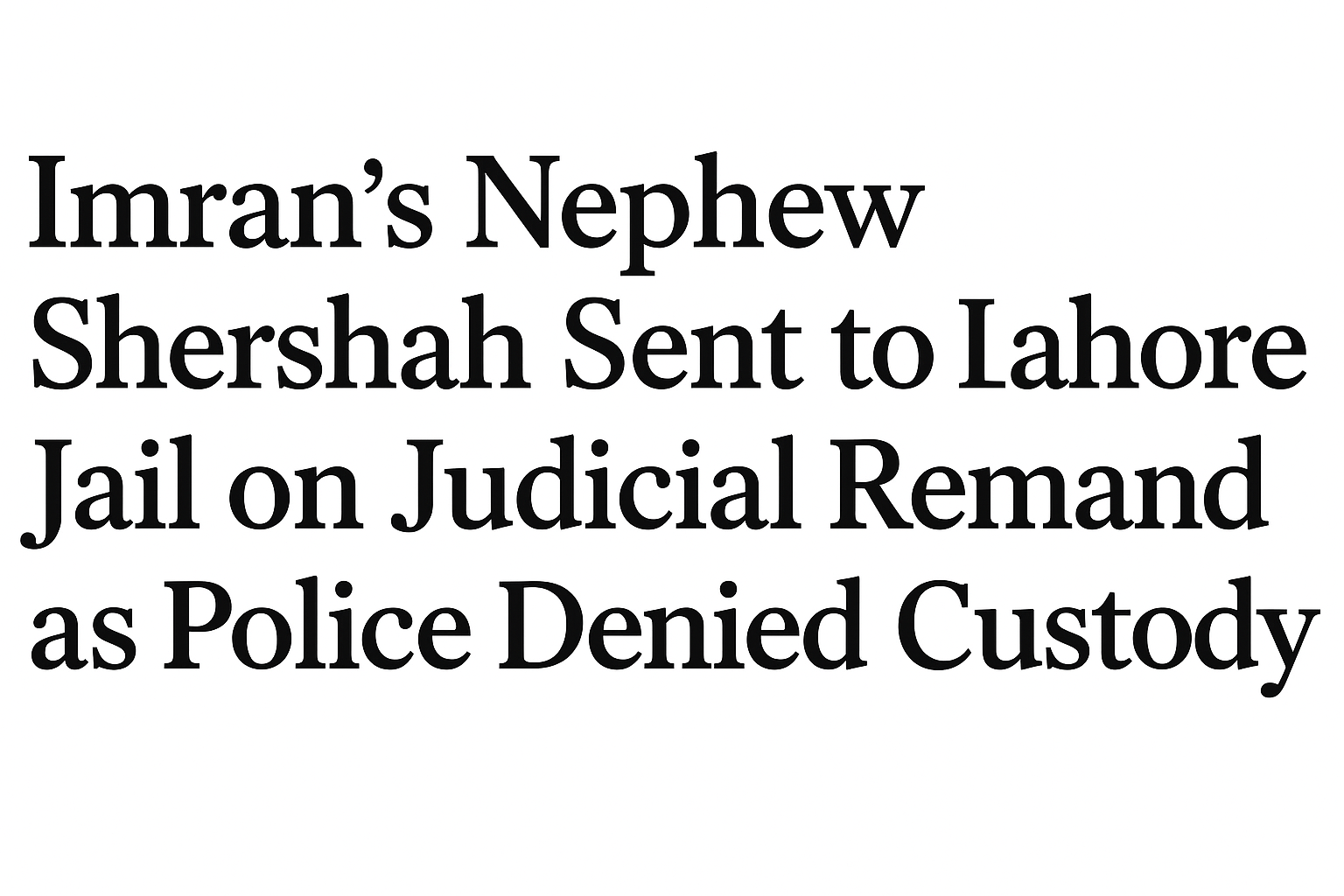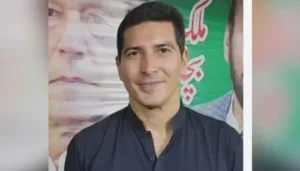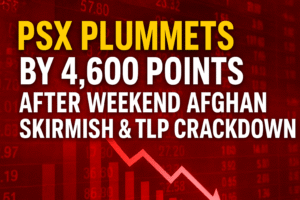Imran’s Nephew Shershah Sent to Lahore Jail on Judicial Remand as Police Denied Custody

Introduction
On August 28, 2025, an Anti-Terrorism Court (ATC) in Lahore denied the police’s request for an extended physical remand of Shershah Khan, nephew of PTI founder Imran Khan and son of his sister Aleema Khan, and instead sent him to jail on judicial remand in connection with the May 9, 2023 riots, including the high-profile Jinnah House attack. This decision has reignited debate surrounding political arrests, judicial fairness, and procedural integrity in Pakistan.(Shershah judicial remand, Imran Khan nephew jail, May 9 riots case, Lahore ATC decision, Jinnah House attack)
This article reviews the background, key legal arguments, human rights concerns, and broader political context—providing clarity and depth on the matter.

1. Context: The May 9 Riots and Jinnah House Attack
-
The May 9, 2023 riots broke out nationwide after PTI founder Imran Khan’s arrest on corruption charges. Protesters vandalized military installations and state properties—most notably the Jinnah House in Lahore, the residence of the corps commander.
-
Following the riots, the state launched rigorous enforcement action, arresting thousands of PTI affiliates. Human rights groups raised concerns about overreach and selective targeting.
2. Arrest Timeline: Shershah’s Detention
-
August 22, 2025: Lahore Police arrested Shershah outside his residence, a day after his elder brother Shahrez Khan had been detained in connection with the same case.
-
The ATC initially granted five days of police custody for interrogation and investigation.
Timeline Summary
Date Event May 9, 2023 Nationwide riots; Jinnah House in Lahore attacked Aug 21, 2025 Shershah’s brother Shahrez arrested Aug 22, 2025 Shershah arrested outside his residence Aug 22–27, 2025 Five-day physical remand granted to police Aug 28, 2025 Court rejects 30-day police plea; sends Shershah on judicial remand Sep 11, 2025 Next court appearance and charge sheet due date
3. The Court Hearing: Police Request & Judicial Response
-
After the expiry of the first remand, the police requested a 30-day extension, arguing they needed more time to recover additional evidence, including Shershah’s mobile phone, a protective mask, and access to his social media accounts.
-
The prosecution also stated that a photogrammetry test had been conducted and a wooden baton (“danda”) was recovered from Shershah’s possession.
-
The judge, however, rejected the request. The court observed that:
-
“Sufficient investigation has already been carried out.”
-
Social media accounts can be traced independently.
-
No further physical custody was required.
-
-
As a result, Shershah was sent on judicial remand, with his next appearance scheduled for September 11, 2025. The court also ordered the police to submit a charge sheet before the next date.
4. Defense Position & Legal Arguments
-
Shershah’s defense lawyers, including Rana Mudassar Umer, Salman Akram Raja, and Barrister Taimur Malik, strongly objected to the remand.
-
Their arguments included:
-
The arrest was illegal and fabricated.
-
Shershah had not received even a single notice over a period of more than two years.
-
Legal precedents, including cases where other political leaders like Dr. Yasmin Rashid were discharged, supported the defense’s stance.
-
Videos alone cannot prove guilt without context or corroborative evidence.
-
5. Human Rights and Political Ramifications
-
Human rights activists have described the arrests of PTI members as politically motivated and part of a “political witch-hunt.”
-
Supporters of the detained leaders argue that the arrests lack due process and are aimed at silencing dissent.
-
Government officials, however, maintain that all arrests are lawful and linked to evidence gathered during investigations.
-
The case reflects broader concerns about the erosion of judicial independence and the use of anti-terror laws against political opponents.
6. What Comes Next: Legal Outlook
-
Charge Sheet Deadline: The investigation team must file the charge sheet by September 11, 2025.
-
Next Steps:
-
Defense may apply for bail.
-
Court will review whether charges are maintainable.
-
Observers expect further legal battles, especially as precedents of other acquittals may influence the outcome.
-
-
Human Rights Oversight: Watchdog organizations are closely monitoring the trial for signs of bias or denial of due process.
7. Implications and Conclusions
-
The denial of extended police remand is seen as a rare moment where the judiciary curtailed state overreach.
-
However, Shershah remains incarcerated, showing that political and legal battles are far from over.
-
The upcoming charge sheet and court proceedings will determine whether this case proceeds toward trial or collapses due to lack of evidence.




